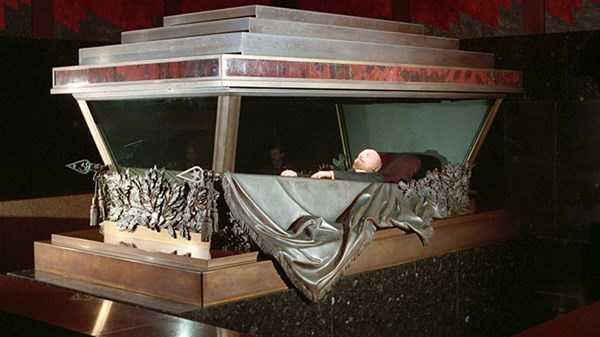Russian court refuses to de-classify medical logs kept by Lenin’s doctors
The Court of Moscow has denied gerontologist Valery Novoselov’s request to disclose medical records containing details of medical treatment administered to Vladimir Lenin shortly before his death, as stated by Ivan Pavlov, Novoselov’s lawyer.
“We will get a better understanding of the underlying reasons of the court’s ruling when we see the analytical part of the judgment, but we already can state that we are going to contest the ruling,” Pavlov said. “We believe that the decision of the archive’s employees to prolong the secrecy of the document was unlawful. The document had already been disclosed to the scientist, so it seems irrational to backpedal. Moreover, before this situation, there was no knowledge that the document was classified. The law protects a private secret for 75 years, in accordance with the desire of Lenin’s niece who sought to protect it from the public, and after that term expires, there is nothing in the law that indicates that this period could be prolonged.”
In January 2017, Valery Novoselov filed a request to be provided access to Lenin’s medical records held by the Russian State Archive of Socio-Political History (RGASPI). In preparation of a scientific paper, Novoselov sought records detailing information on Lenin’s injuries, disease and subsequent death. He was initially granted access to the documents, but when he later requested xerocopies, the State Archive employees refused to provide them, citing ‘restricted access’ to the documents as the cause for refusal.
The State Archive personnel told Novoselov that the medical log of Lenin’s personal doctor Kozhevnikov (from 1922-1923) was regarded as a classified document with restricted access. Providing it to the scientist, they stated, was an exception from the rules. The law protects documents that contain private details of citizens—including private medical information—for 75 years, starting from the document’s initial appearance. As the archive’s acting Director explained, public access to medical records, pharmaceutical documentation, medical tests results and the logs of Lenin’s doctors and nurses was restricted until 1999.
In 1999, however, the restriction was prolonged by a decision of the Federal Archive Service of Russia, based on an application submitted by Lenin’s niece, Olga Ulianova. Ulianova, who died in 2011, asked to prolong restricted access to the documents until 2024. Citing this decision, the archive employees claimed they had no right to provide access to the documents, despite having provided it once to Novoselov as an exception.
Novoselov is writing a book about Lenin’s death. He fears he could now be charged for referencing restricted materials in his book, despite having previously been granted access by the archive employees.
The Federal Archive aims to prolong restricted access to Lenin’s medical records and logs, pharmaceutical documentation and medical test results for another 25 years. Lawyers urged the court to rule this decision as unlawful.
